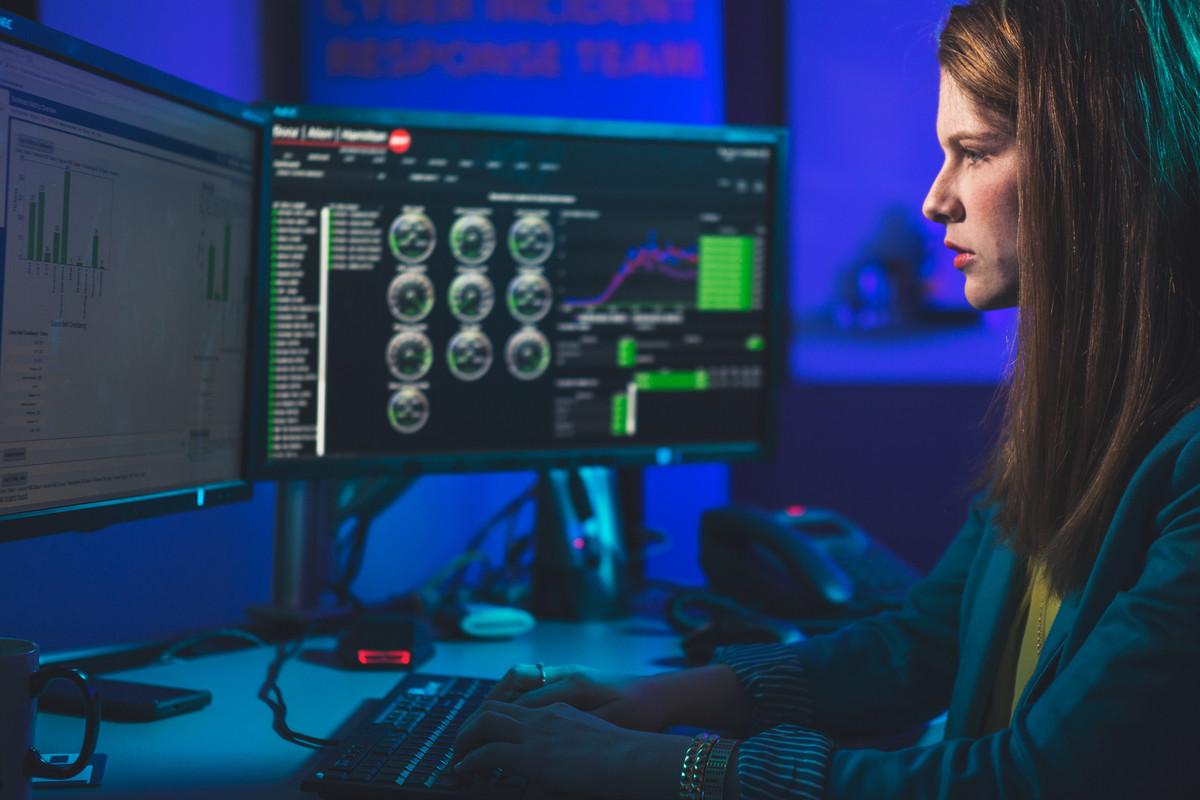Booz Allen and Industry Leaders Explore AI's Impact on San Diego's Booming Cybersecurity Sector

“AI is not only helping cyber firms develop new products but also helping companies expand output amid talent shortages.”
-Booz Allen Senior Vice President Jennie Brooks, head of the firm’s San Diego office
Few cities in America can match San Diego’s status as a growing technology hub. The region’s impact and support of cybersecurity in particular is staggering.
“Cyber in San Diego continues to grow by leaps and bounds, especially in tech, critical infrastructure, and national security. With a total regional economic impact of $3.5 billion annually, the cyber sector is the economic equivalent of hosting nine Super Bowls,” said Lisa Easterly, President and CEO of Cyber Center of Excellence (CCOE)—sponsor of the study.
How have cyber and other key sectors in San Diego used innovations like artificial intelligence (AI) and machine learning (ML) to foster this growth? What’s the impact on the regional economy and workforce?
A new study—"Securing the Future: AI and San Diego's Cyber Cluster"— seeks to answer these questions. Developed by the San Diego Regional Economic Development Corporation (EDC), the new report is the second in a series underwritten by Booz Allen and follows the release last December of the inaugural study: “Measuring the Future: AI and San Diego’s Economy.”
Findings from the new report and corresponding virtual event discussing key takeaways and impact on San Diego follow.
An essential part of the cybersecurity toolkit
How do cybersecurity firms incorporate AI in their work?
“AI is great for threat hunting and great for network security," said Booz Allen Director of AI and Analytics Joe Rohner. “It detects anomalies and dynamically adjusts traffic and policies when attacks happen in milliseconds and humans can’t get in there fast enough.”
Brent McCarty, president of digital security firm and San Diego-based ESET North America, talked about how his firm uses deep learning and algorithms to categorize data into three areas— “safe,” “potentially unwanted,” and “malicious”—with humans in the loop monitoring the models and making sure capabilities stay up to date with evolving threats.
San Diego’s cybersecurity sector has been recognizing AI’s power to more accurately identify, escalate, and resolve cyber threats in drastically less time. The new report revealed that San Diego cyber firms have been developing AI at a rate of 2.5 to 3 times the regional average. Moreover, half of all cyber companies were implementing AI at least three years ago, compared with 43% across all industries.
Fuel for innovation and professional growth
In addition to strengthening cyber protection, AI accelerates innovation to enable companies to get products out faster, said Ion Nemteanu, senior director of data science with Carlsbad’s Thermo Fisher Scientific.
The new study reports that AI development and adoption has helped productivity grow by 7.5% in San Diego’s cyber sector since 2018—nearly triple the average for all San Diego industries.
What does this mean for San Diego’s workers? Navid Alipour, a managing partner with Analytics Ventures, anticipates that AI will continue to spur job creation long into the future. AI drives growth in areas we haven’t even imagined yet, like guiding the ethics behind self-driving cars and other machines that make decisions. AI also shifts employees from mundane tasks to higher-value work. “AI won’t replace a radiologist. It will replace a radiologist who’s not using AI,” Alipour said.
Furthermore, while AI is “great at making observations and accelerating decisions, it’s not bulletproof or foolproof,” Rohner said. “The partnership between humans and AI is essential, especially in the cyber domain.”
In the new study, 61% of cyber businesses reported that they plan to hire workers, including AI specialists, in the next year.
Growing the talent ecosystem
Despite job sector growth of 7.4% since 2018, up to 90% of the area’s cybersecurity companies cited difficulty sourcing qualified workers.
How can companies grow the cyber talent they need to compete and evolve?
Teresa Macklin, director of the Cybersecurity Master’s Program at California State University San Marcos, recommends employers overcome cybersecurity’s many nuances and skillsets by providing experience on the job rather than being overly prescriptive with requirements in the job description. A software developer might meet the tech-specific requirements of a new job, for instance, but they wouldn’t have industry knowledge, like finance or business. Enhanced on the job training will therefore be needed to connect that technical skill base with industry familiarity and best practices.
Mimi Rosado spoke about mentorship and hiring efforts she’s involved with in her position as Division Head, Total Force Management, Naval Information Warfare Center Pacific—an engineering and R&D arm of the U.S. Navy. From her perspective, organizations have an opportunity to diversify the talent pool by widening their consideration to include returning students and community college students.
That open-minded thinking works both ways in the cyber field. One audience member asked what field of study someone interested in a cybersecurity career should specialize in.
“AI and data science are team sports, so anything in STEM will lead you in the right direction,” Rohner replied. “It’s about whatever puts a smile on your face at the end of your day.”
View the new report, and learn more about Booz Allen’s San Diego office and the firm’s work in AI and cybersecurity.

